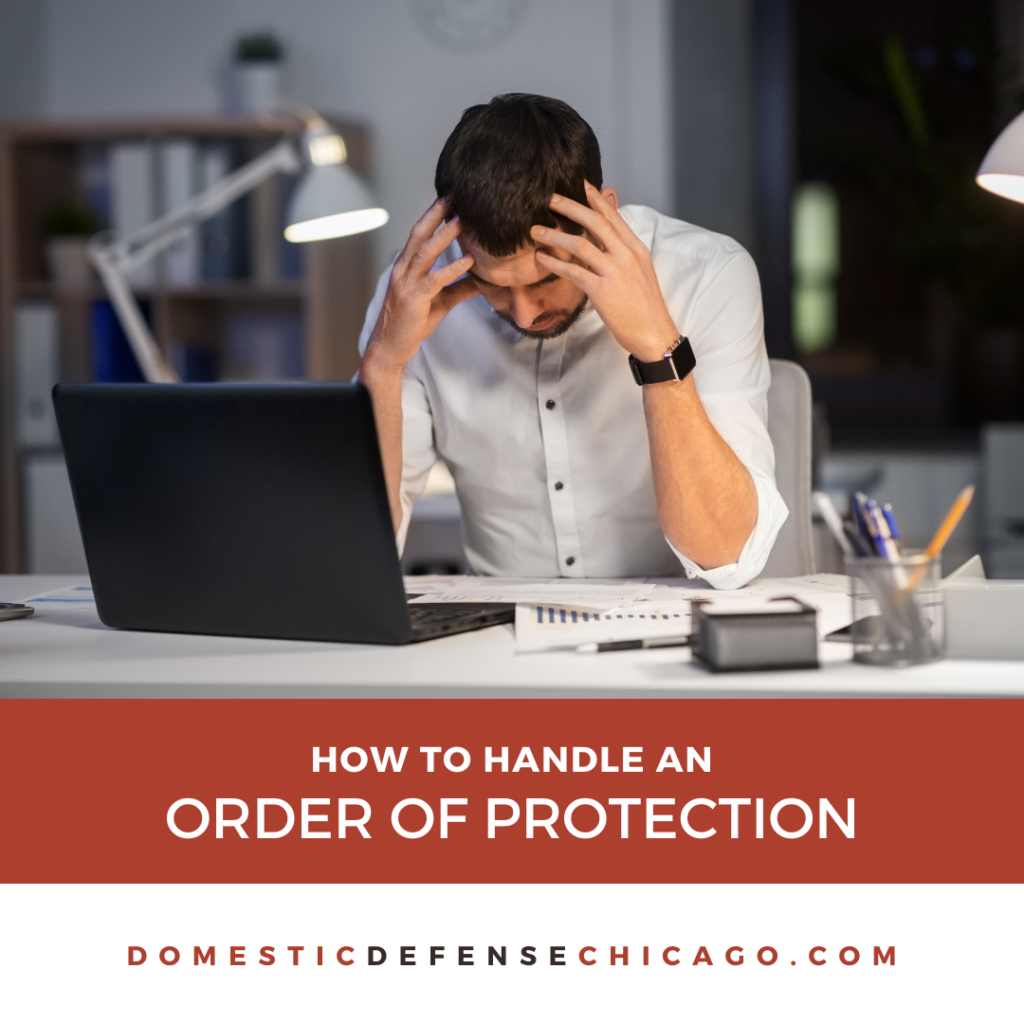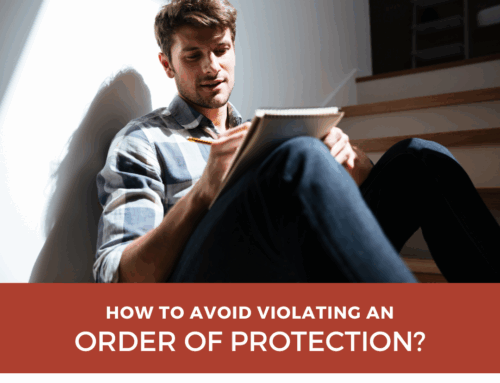Facing an order of protection can be overwhelming, especially if it stems from allegations of domestic battery. These court orders are legally binding and can have immediate consequences on your life, including restrictions on your home, contact with family members, and more. Knowing how to navigate this situation is critical to protecting your rights and avoiding further complications.
How to Handle an Order of Protection Filed Against You
This guide explains the following:
- Understanding what an order of protection means
- Complying with the terms of the order
- Contesting the order in court
- Preparing evidence and gathering witnesses
- Why working with a domestic battery defense lawyer is essential
Here’s a closer look at each.
Understanding What an Order of Protection Means
An order of protection is a court-issued directive designed to safeguard an alleged victim from harm. In Illinois, these orders can impose various restrictions, such as prohibiting contact with the alleged victim, requiring you to vacate a shared residence, or surrendering firearms.
There are three types of protective orders:
- Emergency Order of Protection: Issued without your presence and valid for up to 21 days.
- Interim Order of Protection: Granted after you’ve been notified of the allegations but before a full hearing.
- Plenary Order of Protection: Issued after a court hearing and can last up to two years.
It’s essential to understand the specific terms of the order issued against you. Your attorney can review the details and explain how the order affects your rights and obligations.
Complying With the Terms of the Order
Compliance with an order of protection is non-negotiable. Violating its terms, even unintentionally, can lead to additional charges and severe penalties. Common restrictions may include:
- Avoiding all forms of contact with the alleged victim
- Staying away from specific locations, such as your home or workplace
- Surrendering firearms or other weapons to law enforcement
If you’re unsure about any aspect of the order, consult your attorney immediately. They can clarify your responsibilities and help you avoid accidental violations.
Contesting the Order in Court
You have the right to contest an order of protection during a court hearing. This process allows you to present your side of the story, challenge the allegations, and provide evidence to support your case. A strong defense may include:
- Demonstrating that the allegations are false or exaggerated
- Providing evidence that contradicts the claims, such as text messages or witness statements
- Highlighting any inconsistencies in the petitioner’s testimony
Your attorney will guide you through the legal process and advocate for your rights during the hearing. If successful, the court may dismiss or modify the order.
Preparing Evidence and Gathering Witnesses
Building a solid defense requires thorough preparation. Start by gathering any evidence that supports your case, such as:
- Communication records (texts, emails, or voicemails)
- Surveillance footage or photographs
- Witness statements from people who can corroborate your account
Your attorney will help you organize this evidence and determine how to present it effectively in court. Witnesses who can attest to your character or provide an objective perspective on the events in question can be particularly valuable.
Why Working With a Domestic Battery Defense Lawyer Is Essential
An experienced domestic battery defense lawyer is your best ally when dealing with an order of protection. They can:
- Explain the legal implications of the order
- Ensure you comply with its terms
- Develop a strategy to contest the allegations
- Represent you in court and negotiate on your behalf
Having legal representation ensures that your rights are protected throughout the process and that you’re fully informed about your options.
Handling an order of protection requires careful compliance, thorough preparation, and strong legal advocacy. By understanding your rights and working closely with an attorney, you can navigate this challenging situation while protecting your future.
Do You Need to Talk to an Attorney About Domestic Battery Defense?
If you need to talk to a domestic battery defense attorney in Illinois, we’re here to help. Call us at 847-920-4540 now – we’ll be happy to give you a free consultation and talk to you about your options.







Leave A Comment
You must be logged in to post a comment.